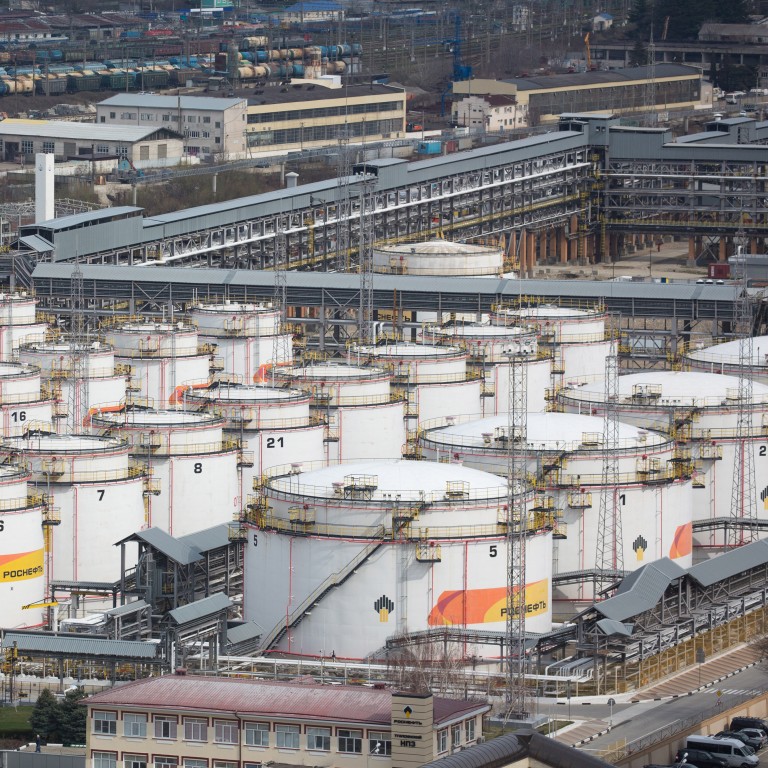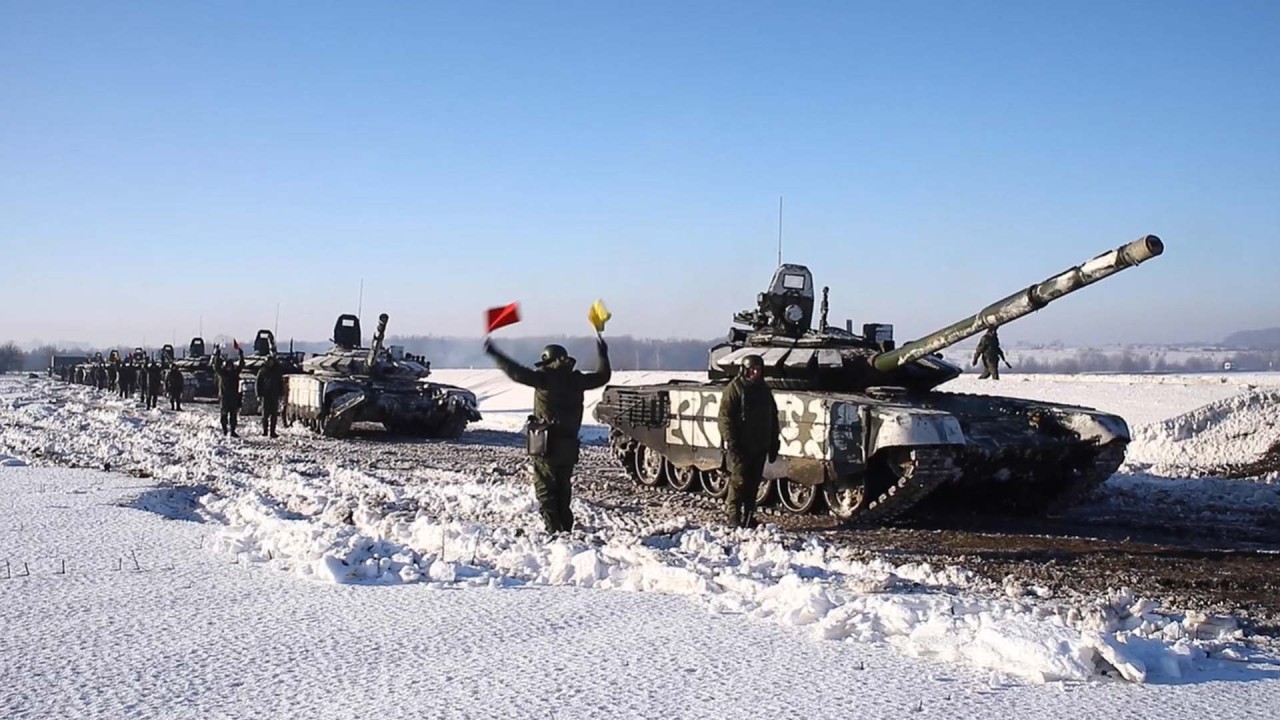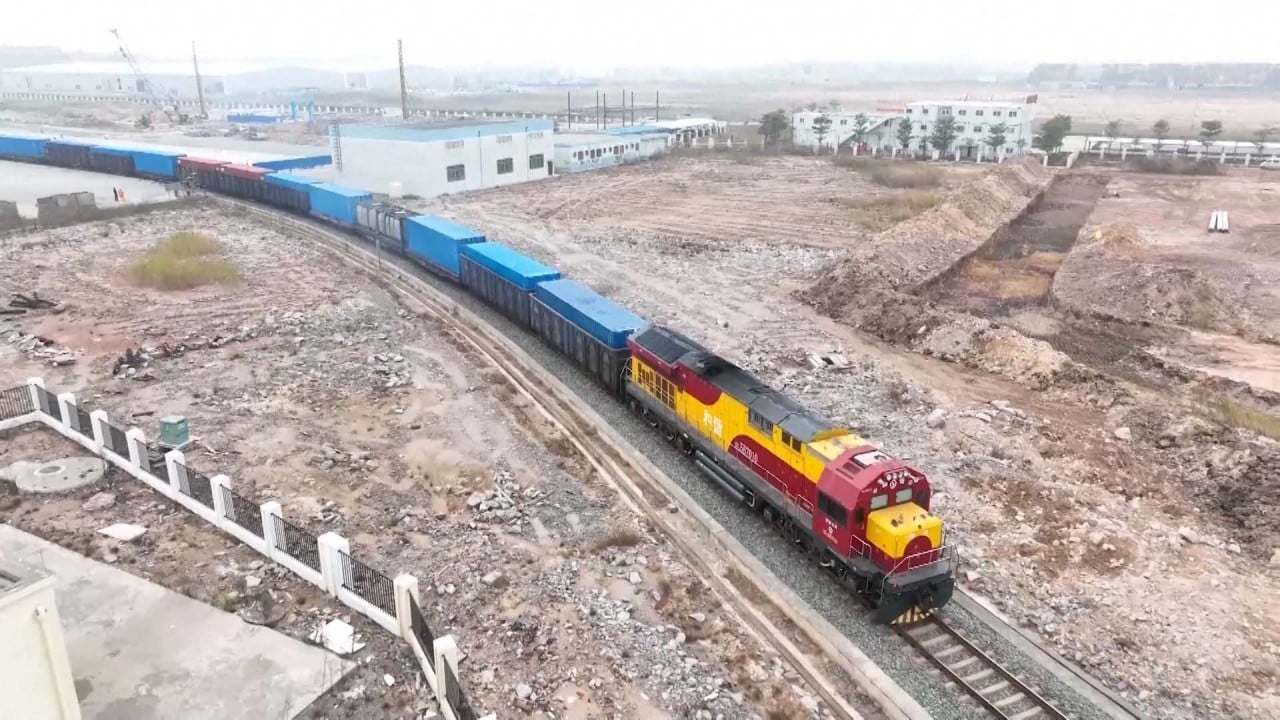
Unequal China-Russia partnership strives for balance against the West
- Russian reliance on fossil fuels may act as a brake on Moscow hopes that growing trade with China can be a shield against Western sanctions
- But there are advantages for both sides in strengthening economic cooperation beyond oil and gas deals
Russia, which has some of the world’s most extensive natural resources, is hoping its ties with the world’s second-largest economy can make up the shortfall in its European markets in the face of any sanctions that would follow an attack on Ukraine.
Beijing is also seeking to manage its deepening rift with Washington and its allies – which have been stepping up efforts to cut their technological and economic ties with China – by boosting innovation and pushing Chinese companies up the global value chain.
Wan Qingsong, an associate professor at the Centre for Russian Studies at the Shanghai-based East China Normal University, looked into Russia’s role in global supply and value chains for a recent study published in the Journal of Eurasian Economy.
He found that China has the most complete manufacturing supply chains in the world, but its overall trade with Russia remains largely limited to commodities and is strongly shaped by domestic political priorities on both sides.
“From the point of motivation, the bilateral cooperation is less driven by domestic needs and more pushed by external pressure,” Wan said.
We will resist: Putin flags united China-Russia front against sanctions
Most of Russia’s exports are fossil fuels, and – unlike many trade-oriented economies – it is less active in the global production and value chains, in part as a result of Moscow’s efforts to offset the economic pressures of Western sanctions since its 2014 annexation of Crimea, he added.
China is already a major customer for Russian oil and gas – the two countries have a 20-year agreement for gas supply and a deal for the transfer of 15 million tonnes of crude oil.
The lengthy joint communique which followed included a promise to ramp up Russia’s Far Eastern gas exports, just as tensions were rising with its European customers over Ukraine.
China, Russia enhance ‘growing energy partnership’ with gas deal
The statement was backed by an estimated US$117.5 billion in new oil and gas deals between the two countries signed during Putin’s visit.
There have been pledges to build a “soybean alliance” and protocols signed to remove the phytosanitary hurdles on Russian exports to China of grain, poultry, beef and dairy products.
Nevertheless, according to official figures, Russian agricultural exports to China amounted to a mere US$3.54 billion last year – less than 7 per cent of its US$52.8 billion energy sales.
China and Russia to create financial system not influenced by ‘third parties’
Russia is also failing to attract Chinese investors, according to Andrej Krickovic, an associate professor with the Moscow-based National Research University’s higher school of economics.
This is despite its vast tracts of unexploited land, which amount to some of the largest areas on Earth, and a highly educated population with a strong science focus, he said. Not even the relatively low-skilled labour costs – thanks to the devaluation of the rouble in recent years – is enticing Chinese business.
“Russia is a relatively small market and a shrinking one,” Krickovic said.
“Russian tech firms dominate the local markets and hold a competitive advantage based on their ability to appeal to specific local tastes. This, combined with the still relatively uncertain property rights for investors, makes Russia not the most attractive market for Chinese entrepreneurs.”
Other problems, including rampant corruption, “prevent the two from developing the kind of deep economic integration we see between the US and its Western partners”, he said.
The lack of concrete Chinese investment in Russia prompted some policy movement in December, when China’s Premier Li Keqiang and Russian Prime Minister Mikhail Mishustin met.
In an apparent attempt to build on its slow progress to date, the two sides agreed to look into updating their bilateral investment treaty, signed in 2006 and in effect since 2009.
Krickovic said patience is wearing thin in Russia, where hopes that an integration into China’s manufacturing supply chains could help “diversify Russia’s economy away from its dependence on energy and natural resources exports” have failed to materialise.
Complicating the relationship still further is a hypersensitivity over Russian sovereignty, reflected in a concern that the country may become dependent on foreign powers – regardless of whether it is the West or China.
So far, Russia has maintained its edge, particularly in nuclear weapons, but concerns over China’s rising power continue to grow, especially among Russian elites.
“Russia is willing to tolerate Chinese economic penetration in Central Asia and the former Soviet space, including Belarus and Ukraine, because it hopes it can also benefit from the Belt and Road Initiative and become integrated into the new value chains,” he said.
“If these hopes do not come to fruition, there may be growing resentment about the relationship perpetuating Russian dependency.”
However, with the comprehensive strategic partnership largely driven by shared pressure from the West, Moscow is unlikely to shift its strategy, Krickovic said.
“Moscow may look to try to hedge against its growing dependency on China, but as long as its relations with the West remain troubled, its options to do so will be limited.”



